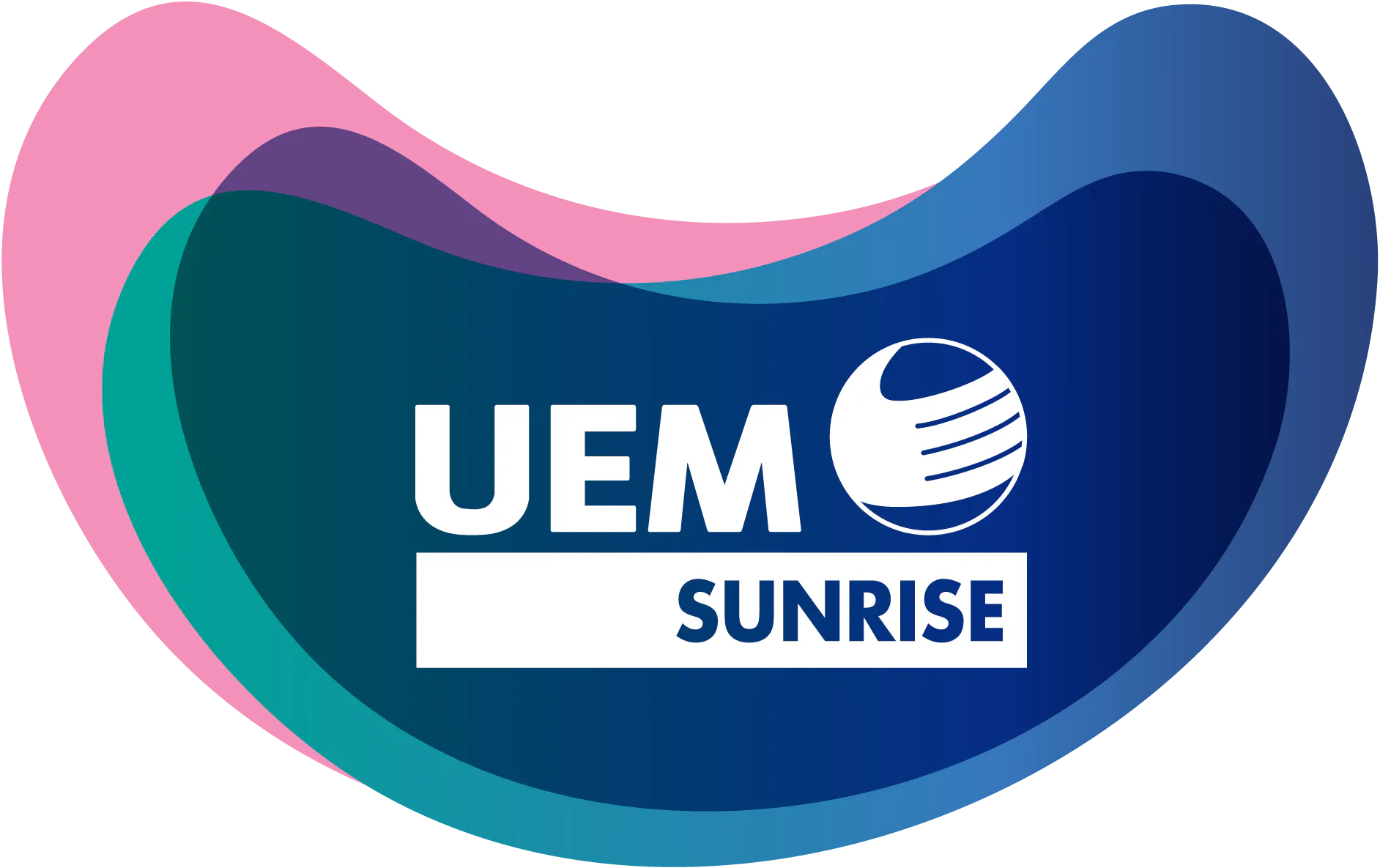Introduction
We are committed to developing our properties by managing our resources through safe, efficient and environmental-conscious methods. Here are quick sustainability approaches when it comes to residential development:
Energy Efficiency
Operate with the best practices and use energy-efficient equipment throughout our operations that contribute to the carbon emissions reduction.
Water Efficiency
Manage water consumption via proper water piping maintenance, use of suitable water fittings and utilise recycled water.
Waste Management
Control waste generation through waste management hierarchy which includes prevention from the source and recycling practices.
Environmental Protection
Comply with all relevant environmental-related acts and regulations.

Increase clean, affordable energy access

To invest in infrastructure that is essential to a long-term economic growth

Produce & Consume with Care

Fighting climate change
Protecting the environment through our sustainable development goals by taking the right measures in all our operations.
Creating a positive impact through sustainability
Electrical Usage
We advocate sustainable solutions by continuously improving our energy efficiency throughout our operations. Our electricity consumption trend has been showing a reduction pattern since we started. Moving forward, we’ll improve our data set coverage and analysis in order to create a long-term target and action plans that will align with the UEM Sunrise Sustainability Blueprint 1.0 towards Building a Low Carbon Future 2030 and Carbon Neutrality 2050.

Electricity Usage (kWH)
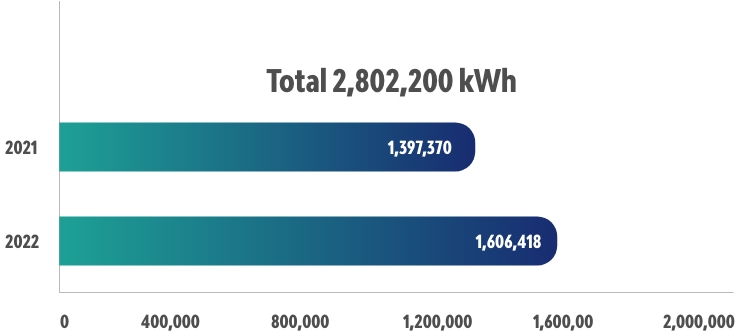
Electricity Usage (kWH)
Note: Electrical usage data for projects is not available for 2019 and 2020, as the process of data collection for projects started in 2021.
Water Consumption
To ensure efficient water consumption, we keep track of our water footprints throughout our operations. Initiatives were implemented which include utilising recycled water for site vehicle washing, dust control and irrigation. We also implemented and recorded our water equipment maintenance procedure to avoid unnecessary leakages and consumption reading errors. As of current data, we have reduced our water consumption compared to the previous year in our Head Office. We’ll improve our data and analysis to create a long-term target and action plans that will align with the UEM Sunrise Sustainability Blueprint 2021 towards Ambition Zero 2040.
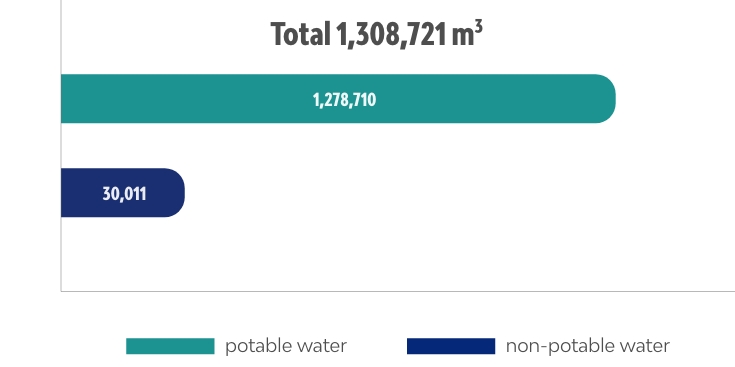
2021’s water consumption data is limited to UEM Sunrise’s offices in the southern region. Water consumption data for projects is not available for 2019 and 2020, as the process of data collection for projects started in 2021.
Carbon Emissions
We measure our carbon emissions from our electricity, petrol and diesel used in our operations, including Head Office and construction sites in accordance with GHG Protocol and IPCC Guidelines. As of now, the trend shows a reduction path. We aim to improve our data set coverage and analysis to create a long-term target and action plans that will align with the UEM Sunrise Sustainability Blueprint 2021 towards Building a Low Carbon Future 2030 and Carbon Neutrality 2050.
Scope 1: CO2-e Emissions (MT) by fuel type
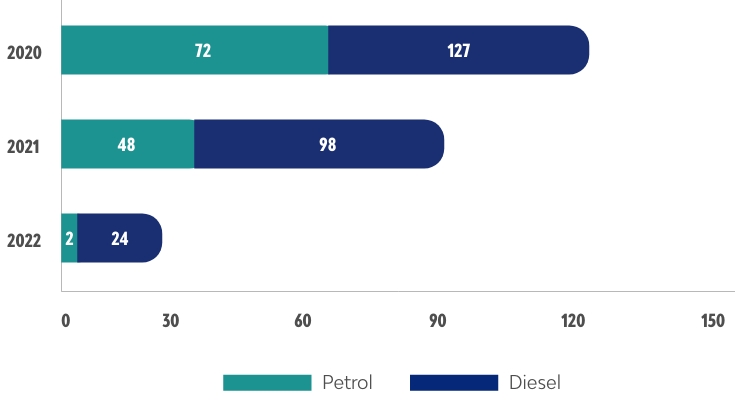
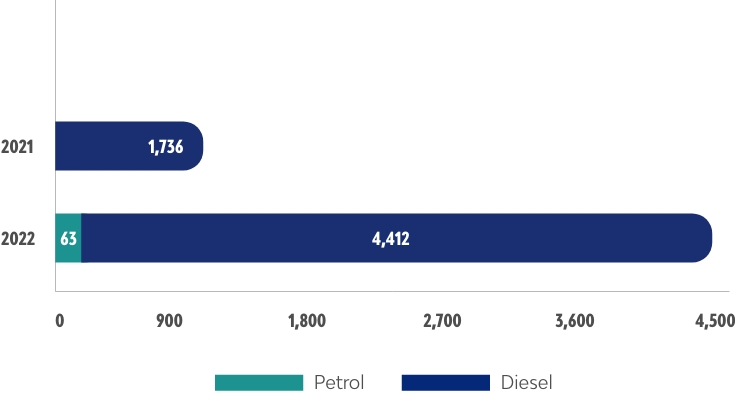
Petrol usage data for projects is not available for 2019 - 2021.
Scope 2: CO2e Emissions (MT) from electrical usage

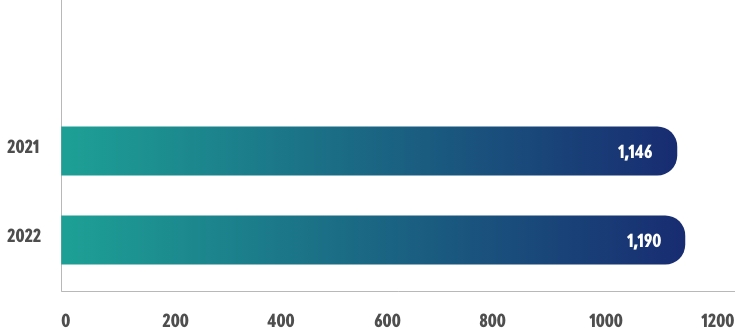
Electricity consumption data for projects is not available for 2019 and 2020, as the process of data collection for projects started in 2021.
TSS, Air Quality & Noise
With our continuous efforts in preventing and reducing all kinds of pollution, we ensure that the measures we take will always yield a difference. The UEM Sunrise accreditation with the ISO 14001:2015 has guided us in minimising the negative environmental impacts of our operations through our Environmental Management System (EMS). Quality checks were carried out on all our projects via a third-party environmental monitoring lab. We gained further guidance by complying with applicable laws, regulations and other requirements, including the Environmental Quality Act 1974 (EQA 1974). In the latest reporting year, our water quality, air quality and noise levels were within the permissible limit. We did not receive significant fines or penalties for non-compliance with the laws and regulations in 2021.
Total Suspended Solids (TSS)
A requirement under Malaysia’s Environmental Quality Act 1974 (EQA 1974)
Air Quality Monitoring (PM10)
A requirement under Malaysia’s Environmental Quality Act 1974 (EQA 1974)
Noise Monitoring
A requirement under Malaysia’s Environmental Quality Act 1974 (EQA 1974)
Waste Generation
We strive for efficient waste management to preserve the environment and mitigate health risks. We integrated a waste management system that reduces waste by focusing on waste segregation by categories.
We started with domestic and construction waste by giving clear instructions to all our employees and contractors to minimise waste generation and implement proper handling. The appointed licensed contractors manage the segregating, transporting and disposing of waste. They were required to record the volumes of materials accepted, diverted, disposed of and the final dispositions.
Some waste management service providers also collaborated with us to develop strategies that include customised diversion plans for each project. Scheduled waste disposals were arranged and handled by registered contractors at approved treatment and disposal facilities as per the Sixth Schedule: Consignment Note for Scheduled Waste under the Scheduled Waste Regulation 2005. The relevant contractors were registered and approved by Malaysia’s Department of Environment.

